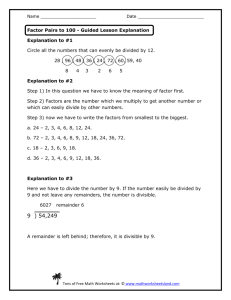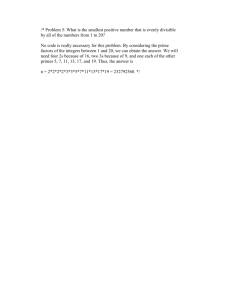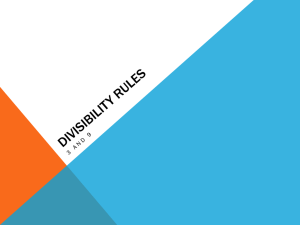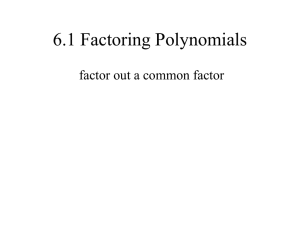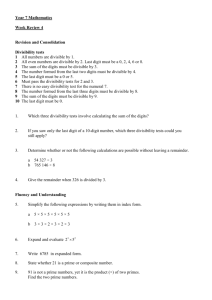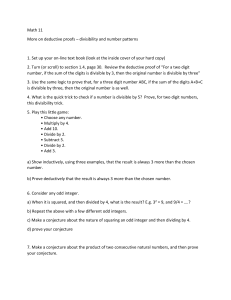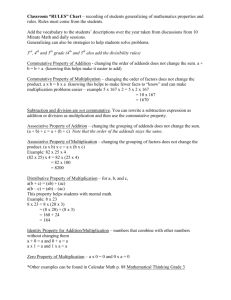Divisibility Rules
advertisement
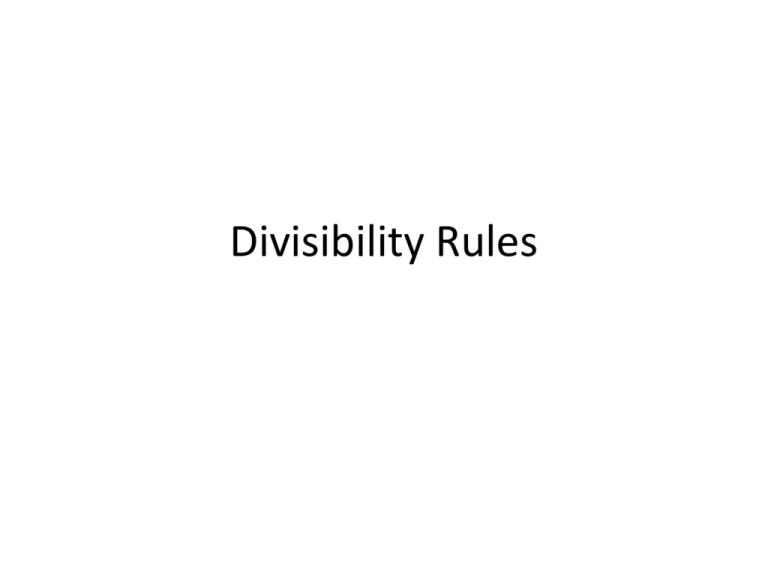
Divisibility Rules What Are Divisibility Rules? • They are a quick way to tell if one number can be completely divided into another without a remainder • For example, 32 is divisible by 2 since 32 ÷ 2 = 16. • We will learn the rules for dividing by 2, 3, 5 and 10. Divisibility Rules Divisibility by 2 • A number is divisible by 2 if the last digit is even (0, 2, 4, 6, or 8) Divisibility by 3 • A number is divisible by 3 if the sum of all the digits is divisible by 3. • 13 156 is divisible by 2 since it ends with an even number (6) • 16 848 is divisible by 3 since 1 + 6 + 8 + 8 + 4 = 27 and 27 ÷3=9 Divisibility Rules Divisibility by 5 • A number is divisible by 5 if the last digit is 0 or 5 Divisibility by 10 • A number is divisible by 10 is the last digit is 0. • The number 13 590 is divisible by 5 since it ends with 0. • 13 595 is also divisible by 5 since it ends with 5 • 17 480 is divisible by 10 since it ends with 0 Divisibility Rules Divisibility by 4 • A number is divisible by 4 if the last two digits are both 0 or if they are divisible by 4 (or by 2 twice) • 26 524 is divisible by 4 since 24 ÷ 4 = 6 or 24 ÷ 2 = 12 and 12 ÷ 2 = 6 Divisibility by 6 • A number is divisible by 6 if it can be divided by 2 and by 3 (it must be an even number and the sum of all its digits must be divisible by 3) • 153 174 is divisible by 6 since it is an even number and 1 + 5 + 3 + 1 + 7 + 4 = 21 and 21 ÷ 3 = 7. Divisibility Rules Divisibility by 8 • A number is divisible by 8 if its last three digits are all 0 or if the number formed by the sum of these last three digits is divisible by 8 • 147 608 is divisible by 8 since 608 ÷ 8 = 76 Divisibility by 9 • A number is divisible by 9 if the sum of its digits is divisible by 9 • 236 232 is divisible by 9 since 2 + 3 + 6 + 2 + 3 + 2 = 18 and 18 ÷ 9 = 2
